Leaders of the Quad countries -- India, Australia, Japan and the United States -- on Saturday reiterated their call for resolution of the war in Ukraine through dialogue and diplomacy, saying "ours must not be an era of war", using a signature formulation delivered by Prime Minister Narendra Modi to Russian President Vladimir Putin in a face-to-face meeting.
The Quad leaders, who held their third in-person summit in Hiroshima on the sidelines of the G-7 summit, also condemned Putin's threat - without naming him - to use nuclear weapons as "serious and inadmissible", amplifying India's own outrage over the threats that had made it cancel an annual bilateral summit with Russia.
The four leaders also said they "strongly oppose destabilising or unilateral actions that seek to change the status quo by force or coercion", without naming China, which has aggressively pushed its territorial claims in the region, including against India.
Further, they condemned terrorism and violent extremism in all forms and cross-border terrorism and called for punishing those responsible for the 26/11 Mumbai terror attacks; reiterated demand for reforming the UN to expand the Security Council; condemned "destabilising ballistic missile launches" and urged for demilitarisation of the Korean peninsula; and expressed concern over the "deteriorating" situation in Myanmar.
Prime Minister Modi did not touch upon Ukraine in his remarks at a joint appearance with the Quad leaders, and focused on the grouping's regional context.
"Through our shared efforts, we are giving a practical dimension to our vision for a free, open and inclusive Indo-Pacific," he said, deploying a formulation used to convey the group's determination to counter China's aggressive intent in the region.
"Climate action, disaster management, strategic technologies, reliable supply chains, health security, maritime security, counter-terrorism are examples of areas in which our positive cooperation is increasing," he said.
Modi, Australia Prime Minister Anthony Albanese, Japan Premier Kishida Fumio and US President Joe Biden held the first in-person summit in Hiroshima on the sidelines of the G-7 summit. They made brief opening remarks before their meeting, which was followed by the release of a vision statement, a joint statement and a factsheet breaking down the progress from the first summit held in Washington in 2021 to the second held in Tokyo in 2022 and, now, the third.
This summit was to be held in Australia, but was relocated to Japan where all the leaders were expected to be for the G-7 summit (India and Australia are invitees, not members of the group). The relocation was forced upon the group by Biden's decision to cancel the Australia leg of his visit because of the ongoing negotiations in Washington with Republicans to raise the debt limit with the looming deadline of June 1.
The third summit became, in effect, the shortest yet, lasting no more than 45 minutes, according to Biden's schedule released by the White House on Friday.
But the documents released and initiatives launched at the summit were anything but brief or inconsequential.
"Our vision is for a region that is peaceful and prosperous, stable and secure, and respectful of sovereignty � free from intimidation and coercion, and where disputes are settled in accordance with international law," the four leaders said in a vision statement.
"We seek a region in which all countries and people can exercise free choice on how they cooperate and trade based on partnership, equality and mutual respect. We share the belief that engaging openly, transparently and constructively creates more opportunities, greater economic vitality and better understanding of shared challenges, to the benefit of all."
The four leaders launched several new joint initiatives at the summit in fields ranging from health to AI technology to climate change to trade to maritime security.
Some of them built upon the existing programmes, such as Covid vaccine cooperation initiative, which has been expanded into a broader Quad Health Security Partnership. It will include a "suite of activities to build the region's capacity to detect and respond rapidly to outbreaks of diseases with epidemic and pandemic potential".
Ongoing cooperation on infrastructure building will get an additional boost from the Quad Infrastructure Fellowships Programme, a new initiative launched, the joint statement said, to empower more than 1,800 of the region's infrastructure practitioners to design, build and manage quality infrastructure in their home countries.
The "Quad Partnership for Cable Connectivity and Resilience" was the other new initiative launched by the leaders. This will seek to strengthen cable systems in the Indo-Pacific, drawing on, the statement said, Quad countries' world-class expertise in manufacturing, delivering and maintaining cable infrastructure.

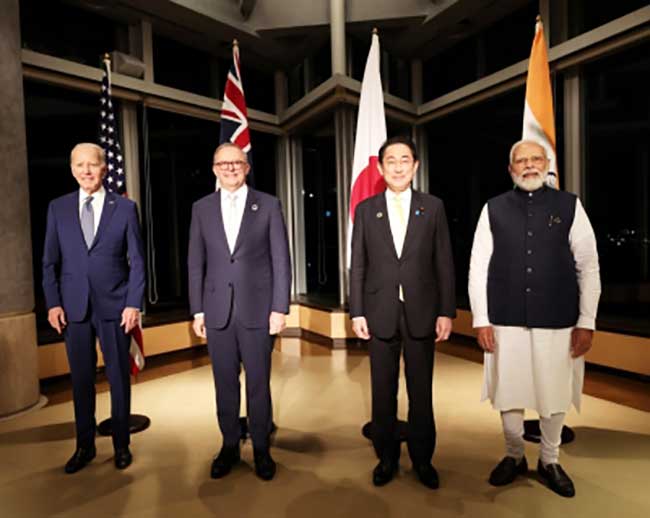
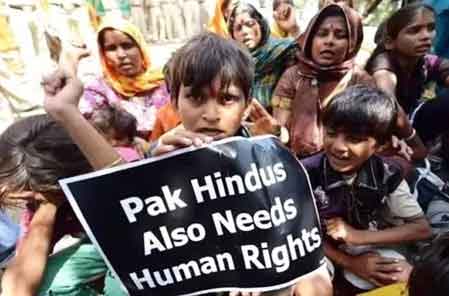
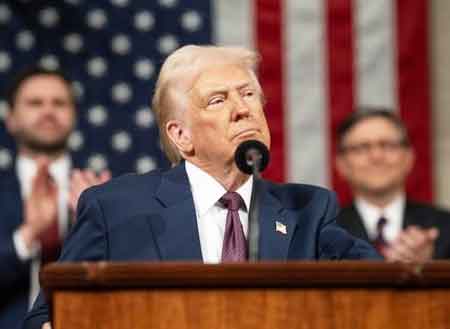
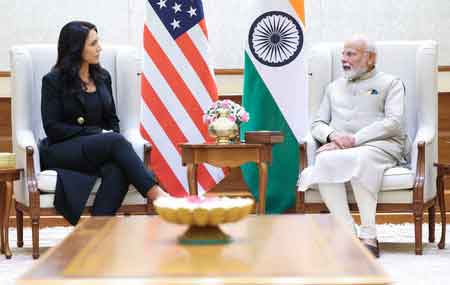
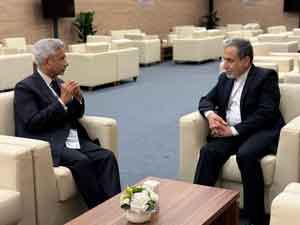


Four held in Tripura for social media posts relating to Pahalgam terror attack
Police arrested four people including two retired teachers in the past 24 hours from Tripura’s three districts for making controversial posts on social media relating to the Pahalgam terror attack, officials said on Saturday.
Indian Army responds firmly to ceasefire violations by Pakistani troops along LoC
In the wake of the recent terrorist attack in Pahalgam, Pakistan has resorted to unprovoked ceasefire violations along the Line of Control (LoC). Over the past two days, Pakistani military posts have been targeting Indian positions with small-arms fire. The Indian Army has given a strong and appropriate response to these provocations, official sources said.
US religious freedom body finds conditions for Pakistan minorities 'worsening', urges strong action
Finding "a worsening religious and political climate of fear, intolerance, and violence" for minorities in Pakistan, the US Commission on International Religious Freedom (USCIRF) has asked President Donald Trump's administration to take strong measures against the Islamic Republic.
Residences of LeT commanders, Pahalgam attack suspects demolished across Kashmir
Security forces have intensified their crackdown on Lashkar-e-Taiba (LeT) operatives and suspects linked to the deadly Pahalgam terror attack that claimed 26 lives on April 22.
India, Pakistan will 'get it figured out,' says Trump on border tensions
US President Donald Trump refused to be drawn into India-Pakistan border tensions in the aftermath of the Pahalgam terrorist attack, stating that the two countries will "get it figured out one way or the other."
CM stresses scientific drain construction to combat flood
Chief Minister Prof. Dr. Manik Saha today emphasized the need to construct drains in a scientific manner to quickly drain the water accumulated in the city during heavy rains.
Bangladeshi man, drug smuggler held at Agartala Railway Station
In a significant development, two separate operations at Agartala Railway Station led to the arrest of a Bangladeshi national for illegal entry into India and a local individual involved in attempting to smuggle ganja to Assam.
Suspected Bangladeshi flag on Rickshaw, two detained
Tension flared in the Joynagar area of Agartala on Thursday late night after locals detained two individuals in connection with a rickshaw allegedly bearing the national flag of Bangladesh.